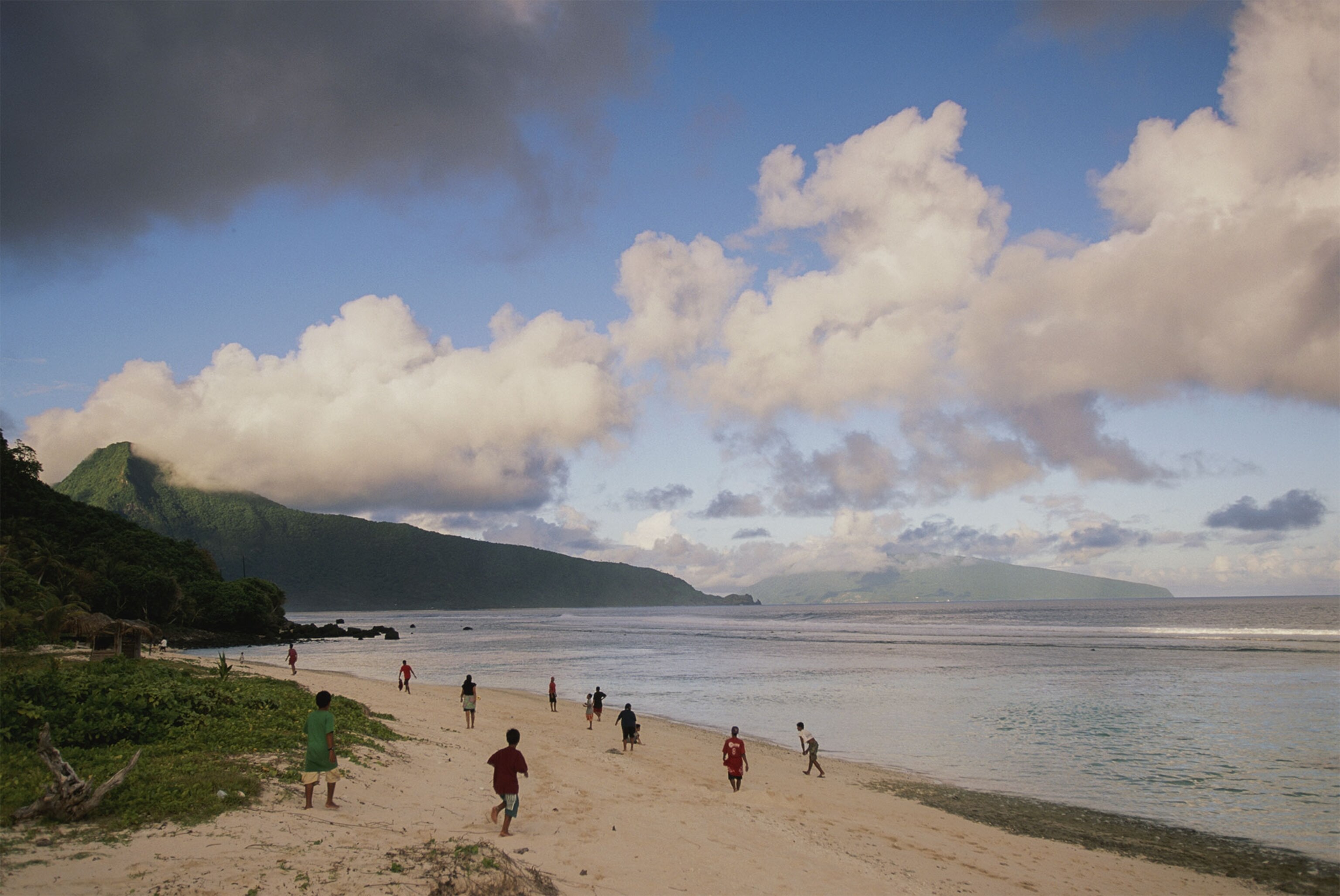
Why Are American Samoans Not U.S. Citizens?
If you are born in Guam or Puerto Rico, you are automatically granted citizenship. If you are born in American Samoa, that isn't the case.
The residents of American Samoa have a long tradition of voyaging to new lands as part of their ancestors’ history. But in modern times, going beyond their five islands and two coral atolls in the South Pacific Ocean has often proven legally challenging.
Despite American Samoa’s status as a U.S. territory, the people who are born there aren’t technically U.S. citizens. They’re called U.S. nationals, a status that means they pay American taxes but cannot vote, run for office, or serve on a jury. They also have special passports that declare them nationals, but not U.S. citizens.
This unusual status has prompted a group of American Samoans living in Utah to file a lawsuit, arguing that they should be considered U.S. citizens under the 14th Amendment—which grants citizenship at birth to anyone born in the U.S. The group says they face travel restrictions when they leave American Samoa, sometimes having to pay fees or obtain permits that U.S. citizens don’t need in order to travel, the Associated Press reports.
What makes this U.S. territory different from the other four—the U.S. Virgin Islands, the Northern Mariana Islands, Guam, and Puerto Rico—when it comes to citizenship?
It boils down to American Samoa’s unincorporated status. In the early 20th century, the U.S. courts defined territories as incorporated and unincorporated in order to divvy up the land that the U.S. received from the end of the Spanish-American War. The justices who made those distinctions saw the people living in the unincorporated territories as “uncivilized” races and said that granting citizenship to them could be dangerous, in the group of rulings that became known as the Insular Cases.
Eventually, the other four territories listed above gained birthright citizenship through statutes, meaning people who are born there are automatically U.S. citizens. But because American Samoa is the only territory still classified as unincorporated, people who are born there are only considered U.S. citizens if they have a parent who is a U.S. citizen. Otherwise, they have to go through the same lengthy, expensive naturalization process as any other person who isn’t a citizen—with no guarantee that it will be successful.
The lawsuit is the second such attempt within the past decade. The first, filed in 2012, was ultimately unsuccessful, with the Supreme Court ruling in 2015 that the 14th Amendment does not apply to overseas territories. The court decided not to reconsider that ruling when it was brought up again in 2016.
Leneuoti Tuaua, a former marshal for the High Court of American Samoa who holds two chief titles, was one of seven American Samoans who filed the first lawsuit. Tuaua said American Samoans are treated differently whenever they travel abroad, even to places like independent Samoa—the island country next door.
“I want my children to have the same world of opportunities available to them that are available to any other child born in any other part of the United States,” Tuaua said in an editorial for Samoa News published in July 2012. “I for one believe that our traditional leaders were right when they believed that U.S citizenship followed the American flag to our islands.”

The government of American Samoa and many of the island’s residents didn’t support the first lawsuit, because of widespread fear that it would threaten fa’asamoa, the Samoan way of life. NPR reports that fa’asamoa is built on a system that supports extended families as social structures and communally held lands run by chiefs. A change in the political structure of American Samoa could alter how that works.
“Once the system of land ownership is put in jeopardy, the whole fiber, the whole pattern of the Samoan way of life will be forever destroyed,” Sean Morrison, former president of the American Samoa Bar Association, wrote for the Hastings Constitutional Law review.
Many American Samoans seeking U.S. citizenship choose to join the military in order to speed up the process. But for some American Samoans, that is still not enough.
“If we are equal in times of war to serve in the U.S Armed Forces, we should be equal to others born in the United States when it comes to citizenship,” said Tuaua in his editorial. “No ifs, ands or buts.”